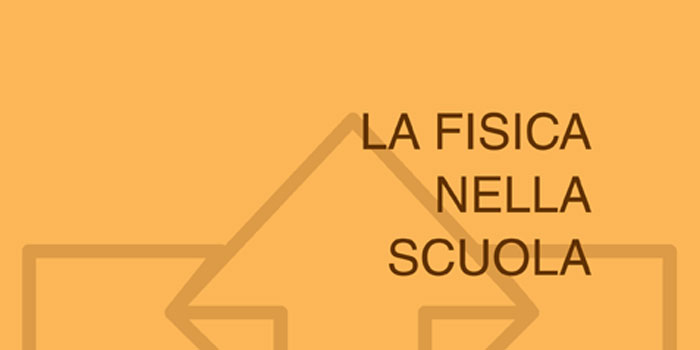Articoli rivista
Note di laboratorio
 Anno XXX - n.3 - luglio/settembre 1997
Anno XXX - n.3 - luglio/settembre 1997 L’attimo fuggente: ovvero come verificare la rotazione della Terra in meno di venti minuti
The rotation of the Earth produces an effect on the behaviour of a sufficiently long pendulum, as in Foucault’s experiment in 1851. This article illustrates an easy method to measure the Earth’s angular velocity with acceptable accuracy and in less than 20 minutes. […]
 Anno XXIX - n.3 - luglio/settembre 1996
Anno XXIX - n.3 - luglio/settembre 1996 L’emissione di luce della lampadina da bicicletta
A series of three simple experimental activities with bycicle lamps allows a determination of the temperature of the filament, an evaluation of the light emission of the lamp. and an examination of the law for the dependence of the illumination on the distance from the source, […]
 Anno XLIII - n.3 - luglio/settembre 2010
Anno XLIII - n.3 - luglio/settembre 2010 La conservazione dell’energia nel tiro con l’arco
The article describes a simple but effective experiment on energy conservation. The experiment was performed in the school physics lab using the Tracker program and an archers’ bow. […]
 Anno XXXI - n.1 - gennaio/marzo 1998
Anno XXXI - n.1 - gennaio/marzo 1998 La fisica per…volare
Home-made one-stage, two-stage and three-stage water rockets were launched at an exhibit on “Physics for… flight”. The design details of the two-stage rocket are described. […]
 Anno LI - n.2 - aprile/giugno 2018
Anno LI - n.2 - aprile/giugno 2018 La misura della costante di Planck: una proposta di attività laboratoriale
In the 2014/2015 school year, the Respighi Scientific High School started the “Fare Fisica: Planck 2.0” (Making Physics: Planck 2.0) project, aiming to challenge our best students thanks to the use of the laboratory. For this purpose we chose a modern physics experiment: the measurement of the Planck constant by means of the characteristic voltage – current of a LED. […]
 Anno XXIX - n.2 - aprile/giugno 1996
Anno XXIX - n.2 - aprile/giugno 1996 La radio a cristallo
After describing the working principles of the crystal radio, the author puts them into practice designing, assembling and testing a simple radio system. Didactic suggestions are given. […]
 Anno XLV - n.3 - luglio/settembre 2012
Anno XLV - n.3 - luglio/settembre 2012 La radio a cristallo: un progetto e una ricerca
The so called crystal radio is a simple receiver that can generate strong interest and emotions. Starting with the improvised ‘Blue Gillette blade’ detector used in the mythical ‘foxhole radios’ by the American soldiers during WWII, we explore some new and unusual detectors that can be assembled ‘in the kitchen’. […]
 Anno XXIV - n.3 - luglio/settembre 1991
Anno XXIV - n.3 - luglio/settembre 1991 La relazione di laboratorio
Can we assume that a good lab report should contain some typical features? This is an attempt to settle the question in the case of practical work based on hypothetical-deductive methods. […]